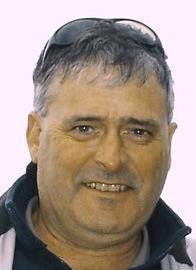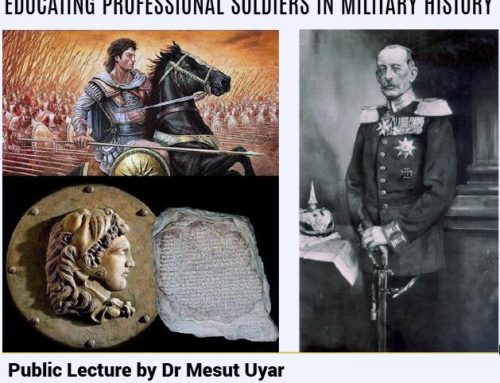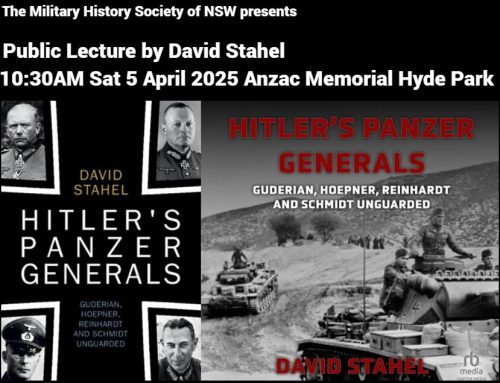Dien Bien Phu 1953-54
The Grave of French Indochina
A lecture by Lieutenant-Colonel (retd) David Wilson

Arguably one of the most influential battles of modern times in South-East Asia, the Battle of Dien Bien Phu lasted for 178 days between late November 1953 and early May 1954. It was the final, decisive engagement in the First Indochina War which began in 1946 when the French made determined efforts to recover their colonies in Indochina (now Vietnam, Laos and Cambodia) after Japanese occupation in World War Two.
The occupation of this northern stronghold at Dien Bien Phu by French and local allied forces became a focal point of world attention. The French selected Dien Bien Phu/Muong Thanh as the centre of operations because of its proximity to both Route 41 and the airfield, the largest of several built in the valley by the Japanese during the war. Communist Viet Minh guerrilla forces commander General Vo Nguyen Giap deployed artillery and anti-aircraft guns in hidden positions in the surrounding hills, which helped negate the French advantages of military technology, communications and air superiority. Once Giap’s troops had denied the garrison full use of the main airfield, the situation devolved into a prolonged siege. The arrival of the monsoon turned the French garrison’s positions into a swamp of foetid trench warfare with echoes of World War One. General Giap was considerably aided by Chinese specialist advisers and substantial amounts of military hardware.
The shock of the defeat at Dien Bien Phu led the French Government to sign the Geneva Accord in July 1954 and within six months France had abandoned its Indochinese colonies completely.
We will examine the opposing commanders and several key personnel who controlled the battle. David will put into context the strategic background as well as the weapons and tactics used by both sides.
About the Presenter

Lieutenant-Colonel (Ret’d) David Wilson, BA (Military Studies) UNSW, MSc (Instructional Systems Design) Florida State University USA, psc (n), jssc.
David Wilson graduated from the Royal Military College, Duntroon in 1975 into the Royal Australian Infantry Corps. He completed 47 years of service in a variety of Regular Army and Army Reserve postings. These include operational tours of duty in Uganda with the Commonwealth Military Training Team (1983) and in Cambodia with the United Nations with UNAMIC and UNTAC (1991-92). In 2006-07 he was deployed as an operations analyst in both Iraq and Afghanistan, working out of the Australian Joint Task Force HQ based in Baghdad. He also served as the Australian Liaison Officer to the USMC-led headquarters and with other international assistance forces based in Thailand during the tsunami relief operation in 2004-05. For this work he was awarded the US Navy and Marine Corps Commendation Medal.
David’s keen interest for military history is long-standing and widely varied. This includes being involved as a specialist technical adviser to the movies “Breaker Morant” and “Gallipoli” which were filmed in South Australia in the early 1980s where he was posted at the time. He has been regularly guiding as a battlefield historian since 2006 and his specialty areas for tours are Gallipoli, France and Belgium, Agincourt 1415 and the Colonial-era forts of NSW. In 2017 he became an Accredited Member of the International Guild of Battlefield Guides (Badge No 81). He is a member of the Gallipoli Memorial Club, a member of the NSW Chapter of the American Civil War Round Table and is a committee member of the 18th Battalion Memorial Rifle Club at Hornsby. He is also a member of the Victoria Barracks (Paddington) Corps of Guides.
As well as being a battlefield guide, David is a published author and is the co-author of “Fighting Nineteenth” – History of the 19th Infantry Battalion, AIF” one of the many untold stories of the Great War, published in June 2011. As a result of this work, he has set up his own business: AIF Research Services which assists families and other interested groups to track their First AIF ancestors. David is regularly booked to speak to local historical societies on a variety of World War One and other military history topics.





